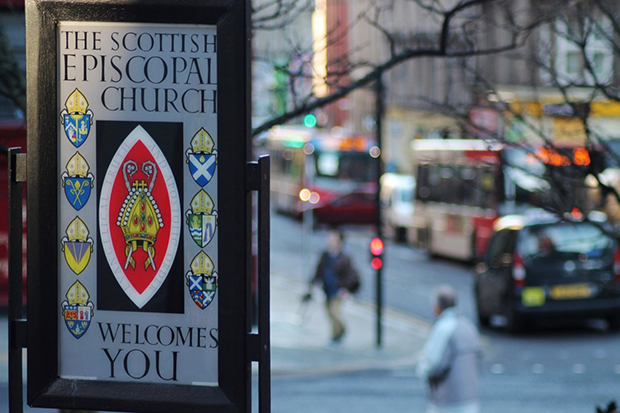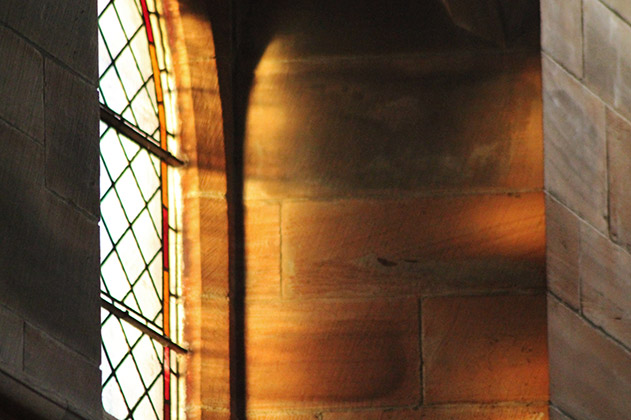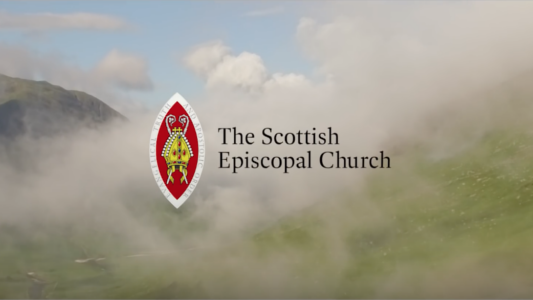Today at Lambeth
The Bishops will spend today in a plenary session on Reconciliation, before taking part in two Lambeth Calls – the first on Reconciliation, then subsequently the Call on Human Dignity will take place this afternoon.
The Plenary session on reconciliation can be streamed live here from 11.35am.
On Monday, the Bishops took part in a plenary session on Anglican Identity as well as the Lambeth Call on the same topic.
Bishop Ian Paton (St Andrews, Dunkeld & Dunblane) spoke on camera in the evening about the Call on Anglican Identity, sharing that there had been some difficulty with parts of the Call in his group.
In the event, some aspects of the Call were affirmed, and much of it was rejected by the Bishops, as noted in this news item from the Lambeth Conference.
Bishop Mark Strange (Moray, Ross & Caithness; Primus) reflected on the first Lambeth Call on Mission and Evangelism, which took place on Saturday. He speaks about the Call, which was endorsed by the Bishops, as being a starting point for the conference as a whole: “the fundamental point at which we start is that we are here to allow people to know that they are loved by God, that they are part of the family of Jesus.”
Bishop Kevin Pearson (Glasgow & Galloway) wrote about the community living rhythms and routines of the Conference, reflecting that: “When you meet with 660 colleague bishops there is so much to disagree about and so much to not fully comprehend especially when the languages being spoken are not our native ones. The utter value of being so levelled by the routines of queuing together and changing together and sharing meals together, as well as bread and wine, does generate a sense of connectedness in our differences.”
Bishop John Armes (Edinburgh) spoke about the business of the day, reporting on the Call on Anglican Identity, and discussions in the bible study: “The bible exposition focused on the idea of holiness. True holiness, emphasised Archbishop Justin Welby, comes from God not from us, and it is far more likely to push us out into a messy and hurting world than to hide us away. Purity and holiness are not the same thing. This led, in my bible study group at least, to a real, hard, challenging conversation: sexuality, culture, creation ethics, new-creation ethics. Later in the day, we gave short shrift to the Call on Anglican Identity, but not without some highlights in the plenary. Much was affirmed about diversity and the importance of difference to our Communion. As Archbishop Maimbo of Tanzania put it, ‘Our differences, which are many, are here to serve us not to break our relationship’.”
 Bishop Andrew Swift (Brechin) reported joyfully that it was: “So good to finally have all three of the Iowa-Swaziland(Eswatini)-Brechin companion Bishops”, and noted that: “Plans for our gathering in Scotland post-Lambeth are looking good! We have been companions for decades – new affirmation of plans for the next season together!”
Bishop Andrew Swift (Brechin) reported joyfully that it was: “So good to finally have all three of the Iowa-Swaziland(Eswatini)-Brechin companion Bishops”, and noted that: “Plans for our gathering in Scotland post-Lambeth are looking good! We have been companions for decades – new affirmation of plans for the next season together!”
Bishop Mark Strange also wrote in his blog that he had been: “involved in a photo shoot with Christian Aid partners as we campaign for the dropping of crippling debt in Zambia.” and noted about the Calls process: “It does feel that everything is a bit “by the seat of our pants”. Much of the call was sent back or rejected, including the notion of a more judicial and synodical communion, the right decision as far as I am concerned.”
Bishop Anne Dyer (Aberdeen & Orkney) highlighted some issues with inclusion at the conference: “There is something to fill every minute from early morning through to dinner time. There are addition events in the evening. What you cannot tell by looking – but we now know, is that we regularly find that events are thirty minutes walk apart. The conference is not taking place in a conference centre, but on a university campus. All of us are tired, but those who are less mobile, or who have pre-existing health conditions are particularly stretched.
“So, every day we are walking miles. This is proving very difficult for many of the women who are not used t walking on pavements, or wearing western-style shoes. They are in agony with their feet. One result is an increasing tendency to miss things that require (yet another) big walk. As bishops we are now meeting to discuss the Lambeth Calls. These are printed out for us and put on the tables – but only in English. There are two bishops on my table who do not have very good English. They find it very difficult to join in the discussions.”








